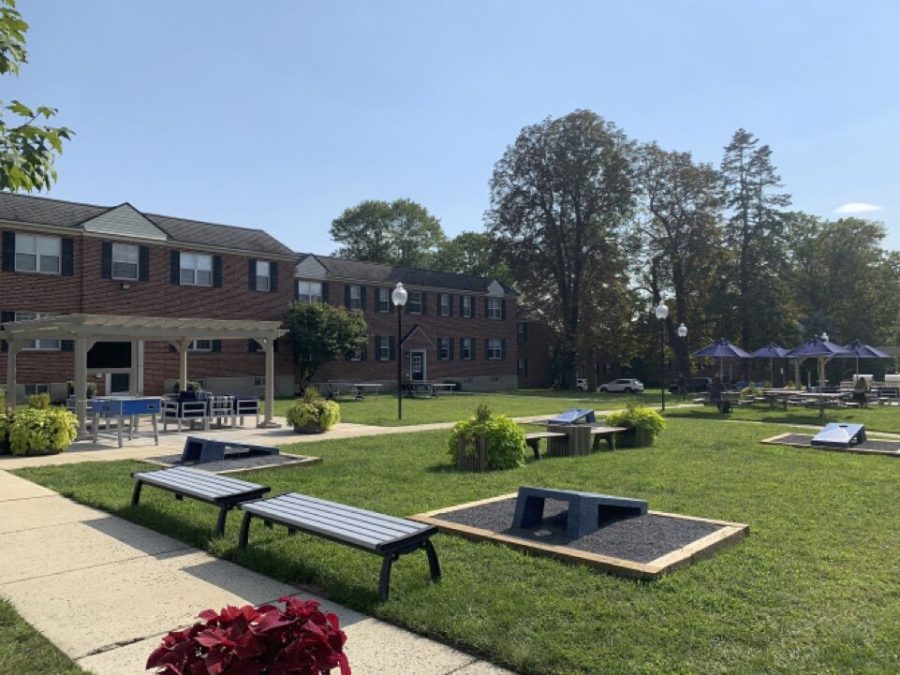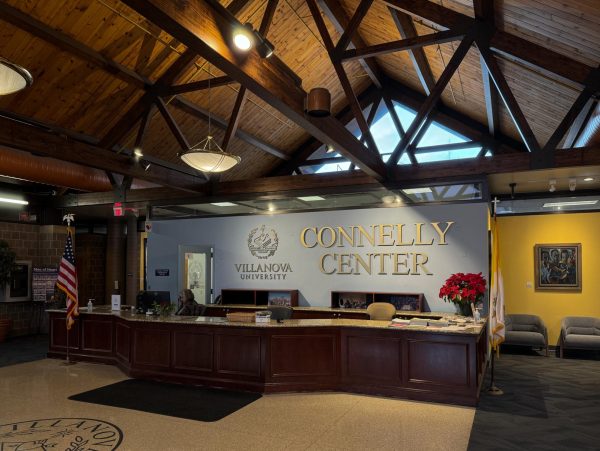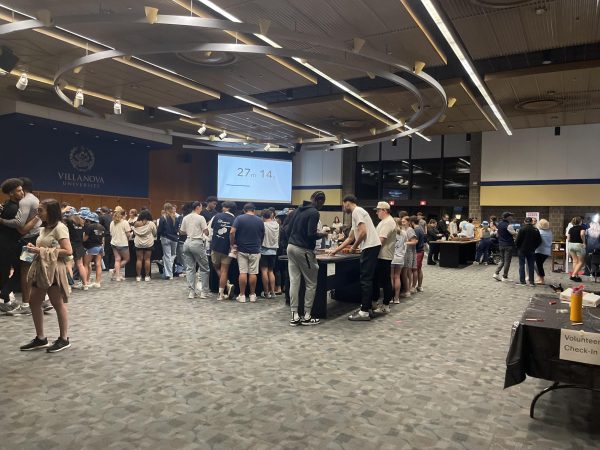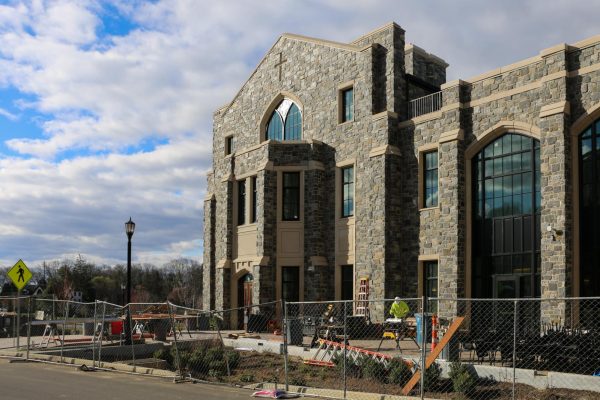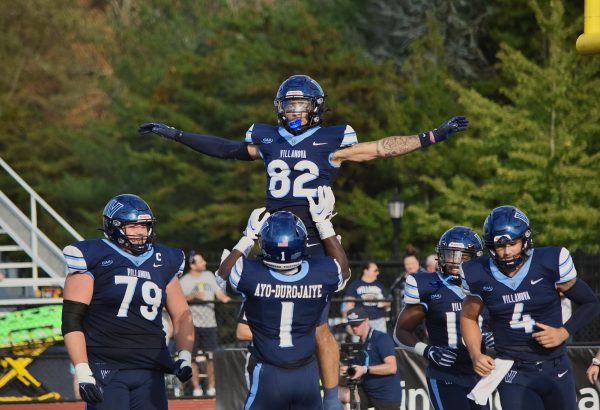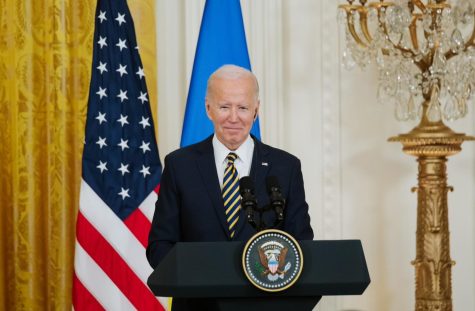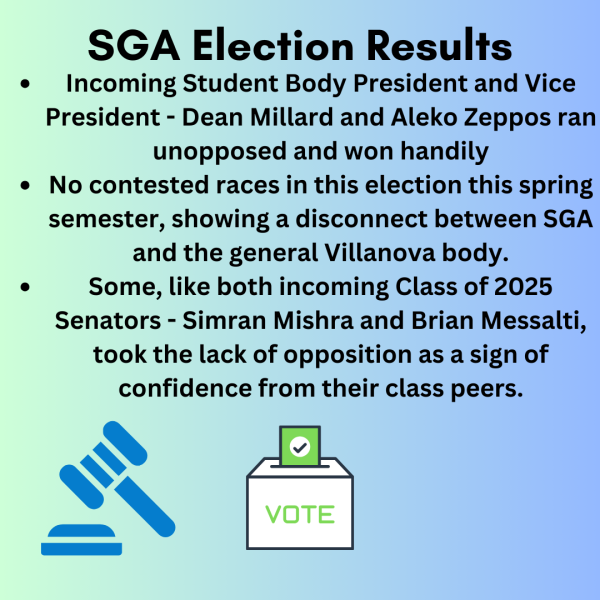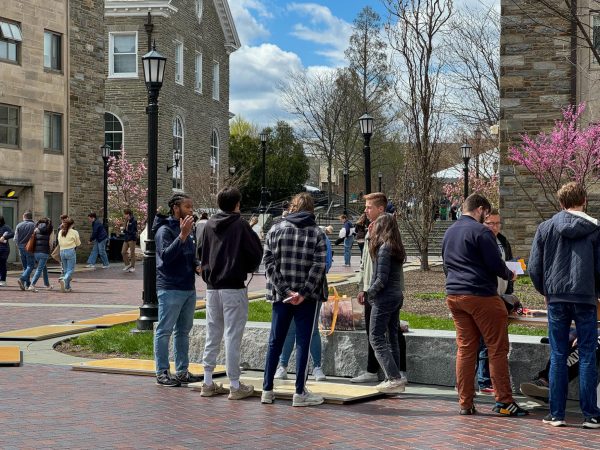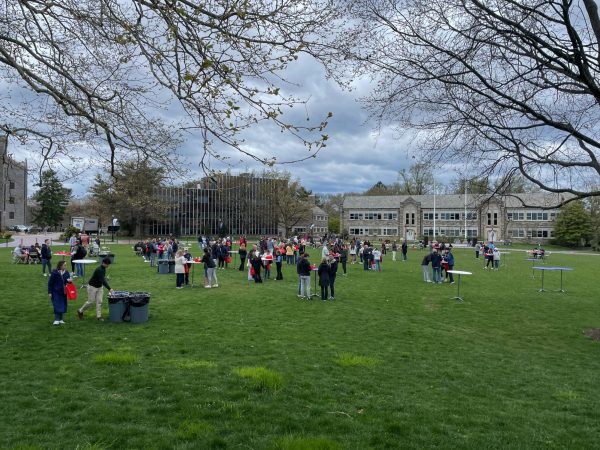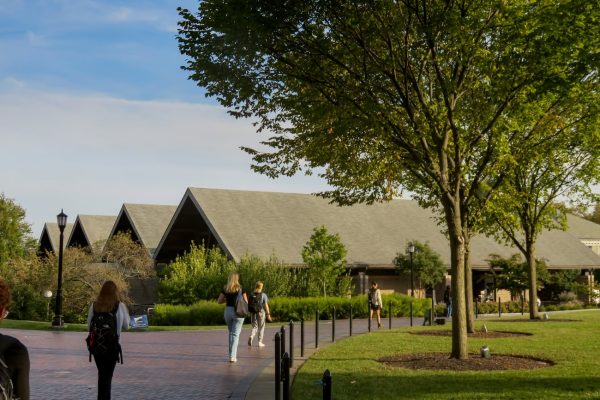University Officials Spend Unpaid Time Off Campus to Reinforce Health and Safety Guidelines
Administrators have spent weekend nights at The Villas at Bryn Mawr.
September 9, 2020
With 54 active COVID-19 cases (as of Sept. 8, 2020) at the University, some staff members, like Associate Vice President for Student Life Kathleen Byrnes, are demonstrating their commitment to keeping campus open.
The past two weekends, Byrnes and the non-official group of 12 other administrative members have spent their weekend nights at off-campus apartment complexes, such as The Villas at Bryn Mawr and College Hall Apartments (commonly referred to as “Home Props” and “The Courts,” respectively).
Byrnes referred to her group’s setup at The Villas as playing “zone defense,” as she and her colleagues attempt to intervene and de-escalate any social gatherings that break health and safety guidelines that have been put in place by the University and local and federal health officials.
When asked why a staff member would volunteer to devote unpaid time to sit at off-campus apartment complexes on the weekend, Byrnes said that this urge came from a sense of responsibility to the community. The possibility of a large party potentially resulting in a cluster of coronavirus cases that could then spread across campus causes great anxiety for University officials.
This group of University administrative members has noted its commitment to student and faculty health but also the desire to see the University remain open for the entire semester. Byrnes and her colleagues believe that by spending time off-campus, especially where large gatherings are likely to happen, they have some chance of preventing irresponsible behavior.
The approach of these administrative members is simple. They are not and do not want to be strict enforcers of policy. Their plan of attack is to “interrupt, intervene and de-escalate.”
Byrnes and her colleagues are not as worried about documenting student offenses that they see, but they are more concerned with protecting student health.
Based on what Byrnes has seen on her weekend nights off campus, she believes that students are receptive and willing to comply with herself and other colleagues that students interact with. Only on a few occasions, particularly at College Hall Apartments, were administrators met with curses and confrontations from students. However, these cases were anomalies, as students tend to keep their masks within close grasp and keep their distance while being social outside.
When asked about the University’s chances of staying open until November, Byrnes seemed very optimistic. Her initial stress was to make it to Labor Day Weekend, and now that the University has passed this point, she is nervous, but excited, to see how the University and undergraduate students handle the week. If Villanovans make it safely to mid-September, she feels that the University has a strong potential to stay open for the rest of the year.
Many factors will inevitably affect the University’s decision to remain open or closed, and just because one date passes does not mean that the possibility of closing is no longer an option. Byrnes worries about Villanovans becoming complacent. She urges students to “stick with” protocols, and if all join together in this effort, the University has a good possibility of remaining open with healthy community members.
While the University’s future is unforeseeable, Byrnes leaves students with one message: Reach out to friends and family. She understands that this is very isolating time with many points of anxiety, and if a community member knows someone who may feel lonely, he or she should not hesitate to reach out.

